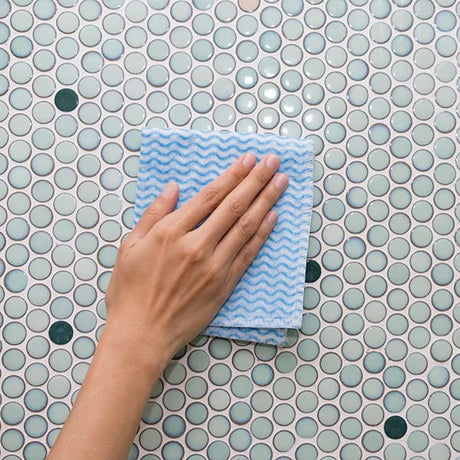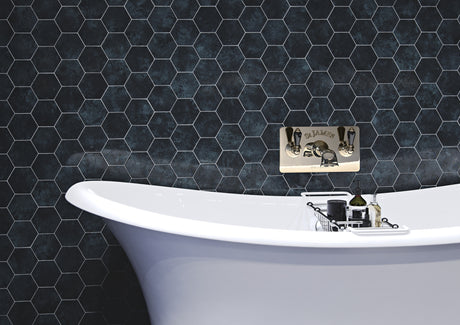Keep Your Home Toasty with These Radiator Tips
Homeowners know that keeping a warm and comfortable home is a top priority during the chilly months. A key player in this pursuit is your heating system, specifically your radiators. They're the unsung heroes that ensure every room stays nice and cosy. But, like all household systems, they need a little TLC to perform their best. One essential skill every homeowner should have in their toolkit is knowing how to bleed a radiator. In this guide, Asturias Bathrooms explores why this simple task is crucial, how you can do it yourself, and how a bit of maintenance can keep your home heating system running smoothly and efficiently.
The Role of Radiators in Home Heating Systems
Radiators are central to a home's heating system, spreading warmth throughout each room. By transferring heat from hot water or steam, radiators help maintain an even temperature indoors, making sure your home stays snug. But how exactly do they work, and why do they sometimes need bleeding?
Radiators function by circulating hot water or steam, which radiates warmth into the room. Over time, air can become trapped inside, creating cold spots and reducing efficiency. This air reduces the radiator's ability to heat a room evenly. Bleeding a radiator involves releasing this trapped air, allowing hot water to fill the space and improve performance.
An efficient radiator means a warm home and lower energy bills. Regularly checking and maintaining your radiators can prevent bigger problems down the line, ensuring your heating system is working at its best.
Understanding Radiator Mechanics
Before you start, it's helpful to understand how a radiator works. Essentially, it's a network of pipes filled with hot water, providing heat through convection. Knowing the basics makes troubleshooting and maintenance easier.
Common issues with radiators include cold patches, odd noises, and inefficiency. These can often be resolved by bleeding, but sometimes they indicate other problems. Recognising these issues early can help you take action before they escalate.
By understanding your radiator's mechanics, you can confidently diagnose and tackle minor problems. This knowledge empowers you to keep your heating system in top shape and ensures your home remains warm and inviting.
Step-by-Step Guide to Bleeding a Radiator
Bleeding a radiator is a straightforward process that can make a big difference in your home's comfort. Here's how to do it safely and effectively:
What You'll Need
To bleed a radiator, you'll need a radiator key or a flat-head screwdriver, a cloth, and a container to catch any drips. These tools are inexpensive and widely available at hardware stores.
Preparing Your Radiator
Start by turning off your heating system. This prevents new air from entering the system while you work. Allow your radiators to cool completely. This step is crucial to ensure your safety, as the water inside can be very hot.
Bleeding the Radiator
Locate the bleed valve, usually found at the top of the radiator. Place your cloth and container beneath it to catch any escaping water. Insert the radiator key or screwdriver into the valve and turn it counterclockwise. You'll hear a hissing sound as air escapes. Once water begins to drip out steadily, close the valve by turning it clockwise.
Repeat this process for each radiator in your home, starting with the one furthest from your boiler. This ensures all trapped air is effectively released from the system.
Beyond Bleeding – Diagnosing Common Radiator Issues
While bleeding solves many problems, it's not a catch-all fix. Here are a few other common issues you might encounter and how to address them:
Radiator Won't Heat Up
If a radiator doesn't heat up even after bleeding, check that the radiator valves are fully open. Sometimes, balancing the system by adjusting other radiators can help distribute heat evenly.
Noisy Radiator
Unusual noises can indicate trapped air or a faulty valve. If bleeding doesn't solve the issue, the problem might lie with the valves. Consider calling a professional if the noise persists.
Leaking Radiator
Leaks can stem from loose connections or corrosion. Tighten any loose fittings and check for rust. If the leak continues, it might be time to replace parts or call in an expert.
The Benefits of Regular Radiator Maintenance
Regular maintenance of your radiators offers numerous benefits. Not only does it improve efficiency, but it also extends the life of your heating system and reduces energy costs.
Energy Efficiency
Well-maintained radiators heat your home more effectively, using less energy and saving money. Trapped air forces your boiler to work harder, increasing energy consumption.
Longevity
Regular checks and maintenance prevent severe damage, prolonging the life of your radiators and avoiding costly replacements.
Home Comfort
Consistent warmth is vital to a comfortable home environment. Regular maintenance ensures your radiators perform optimally, keeping you warm during those cold winter months.
Frequently Asked Questions about Radiator Maintenance
Radiator maintenance might feel daunting, but it doesn't have to be. Here are answers to some common questions to guide you:
Do I Need to Bleed My Radiators Regularly?
Yes, especially if you notice cold spots or hear gurgling noises. Aim to check and bleed your radiators at least once a year, ideally before the heating season starts.
Can I Bleed a Radiator While the Heating Is On?
No, always switch off your heating and allow the system to cool before bleeding. This ensures safety and effectiveness by preventing air from entering the system during the process.
What If Bleeding Doesn't Fix the Problem?
If bleeding doesn't resolve an issue, it might be time to call a professional. Persistent problems could indicate more serious issues like blockages or faulty valves that require expert attention.
Keeping Your Home Warm and Efficient
Maintaining your radiators and heated towel rails is crucial for both comfort and efficiency. By taking the time to bleed and check your radiators, you ensure they're working at their best, keeping your home warm and your energy bills low.
Final Thoughts
Understanding how to care for your radiators empowers you as a homeowner. Regular maintenance not only enhances your home's comfort but also extends the life of your heating system.
Next Steps
Consider scheduling regular professional maintenance to keep your heating system in top condition. And remember to share this guide with friends or family who might also benefit from these tips. Keeping your home warm and efficient is just a radiator bleed away.














